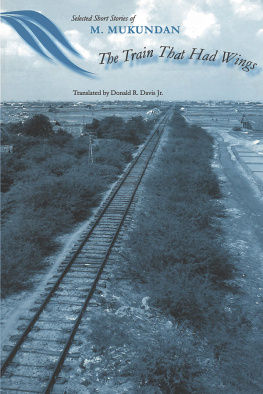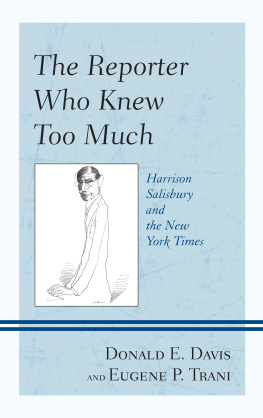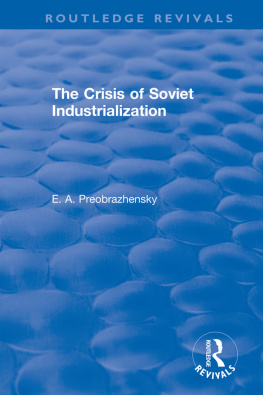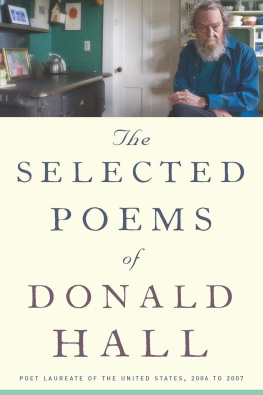Donald R. Davis - The Train That Had Wings: Selected Stories of M. Mukundan
Here you can read online Donald R. Davis - The Train That Had Wings: Selected Stories of M. Mukundan full text of the book (entire story) in english for free. Download pdf and epub, get meaning, cover and reviews about this ebook. year: 2020, publisher: The University of Michigan, genre: Detective and thriller. Description of the work, (preface) as well as reviews are available. Best literature library LitArk.com created for fans of good reading and offers a wide selection of genres:
Romance novel
Science fiction
Adventure
Detective
Science
History
Home and family
Prose
Art
Politics
Computer
Non-fiction
Religion
Business
Children
Humor
Choose a favorite category and find really read worthwhile books. Enjoy immersion in the world of imagination, feel the emotions of the characters or learn something new for yourself, make an fascinating discovery.
- Book:The Train That Had Wings: Selected Stories of M. Mukundan
- Author:
- Publisher:The University of Michigan
- Genre:
- Year:2020
- Rating:3 / 5
- Favourites:Add to favourites
- Your mark:
- 60
- 1
- 2
- 3
- 4
- 5
The Train That Had Wings: Selected Stories of M. Mukundan: summary, description and annotation
We offer to read an annotation, description, summary or preface (depends on what the author of the book "The Train That Had Wings: Selected Stories of M. Mukundan" wrote himself). If you haven't found the necessary information about the book — write in the comments, we will try to find it.
The Train That Had Wings: Selected Stories of M. Mukundan — read online for free the complete book (whole text) full work
Below is the text of the book, divided by pages. System saving the place of the last page read, allows you to conveniently read the book "The Train That Had Wings: Selected Stories of M. Mukundan" online for free, without having to search again every time where you left off. Put a bookmark, and you can go to the page where you finished reading at any time.
Font size:
Interval:
Bookmark:
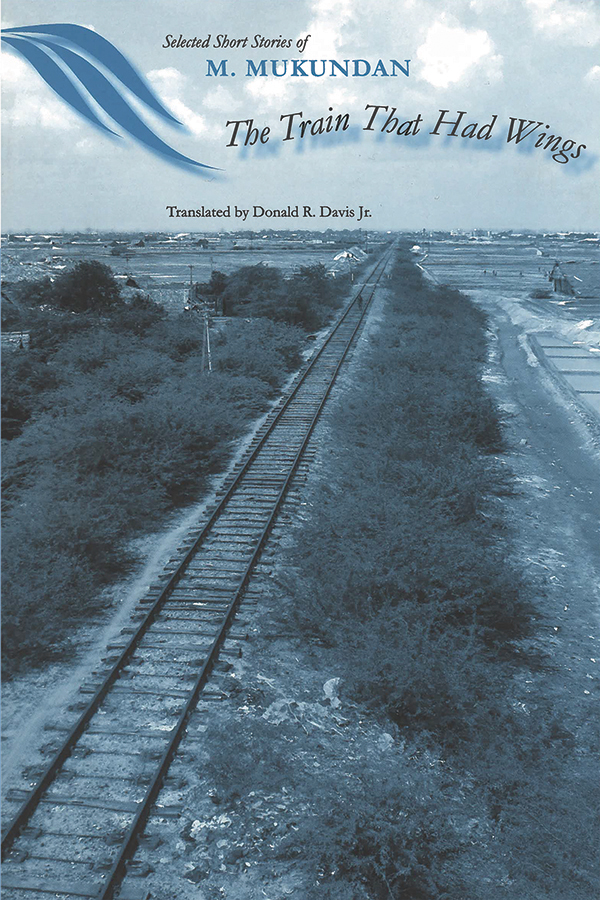
The Train That Had Wings
Selected Short Stories of
M. MUKUNDAN
Translated from the Malayalam by Donald R. Davis, Jr.
The Centers for South and Southeast Asian Studies
The University of Michigan
Ann Arbor
Open access edition funded by the National Endowment for the Humanities / Andrew W. Mellon Foundation Humanities Open Book Program
Copyright by the Centers for South and Southeast Asian Studies 2005
All rights reserved
Published in the United States of America by
The Centers for South and Southeast Asian Studies
Manufactured in the United States of America
 Printed on acid-free paper
Printed on acid-free paper
2008 2007 2006 2005 4 3 2 1
No part of this publication may be reproduced, stored in a retrieval system, or transmitted in any form or by any means, electronic, mechanical, or otherwise, without the written permission of the publisher.
A CIP catalog record for this book for the British Library is forthcoming.
Library of Congress Cataloging-in-Publication is applied for.
Cloth ISBN: 0-89148-090-0
Paper ISBN: 0-89148-091-9
ISBN 978-0-89148-090-7 (hardcover)
ISBN 978-0-89148-091-4 (paper)
ISBN 978-0-472-12771-9 (ebook)
ISBN 978-0-472-90167-8 (open access)
The text of this book is licensed under a Creative Commons Attribution-NonCommercial-NoDerivatives 4.0 International License: https://creativecommons.org/licenses/by-nc-nd/4.0/
Contents
STORIES
Why I Like Mukundan... and Hate Him, Too
A five-and-a-half year old's social angst, flying trains with wings, the tragic life of houseflies, breast milk addicts, psychedelic oceans, and a rich man urinating in a cremation ground. These disparate images are all concoctions of the peculiar imagination of M. Mukundan. They are part and parcel of Mukundan's own ocean of stories, which includes both novels and short stories.
Reading a Mukundan story is not an art; it is a calculus. No special training is required, if you are willing to lose your prejudices, your traditions, and your self for as long as it takes to finish the story. You must add up the world without these refuges. Some writers play with humanity's prejudices and traditions in order to tell their tale and make their impact. In Mukundan's short stories, however, cultural heritage and biases are flip-flopped, warped, stretched out like taffy. Mukundan's world is certainly our world, but not exactly. Sometimes it is more intense; sometimes more cruel; always more raw. It is our world without the skin and muscle, but the blood is the same.
A Mukundan story is not a satisfying meal. When you finish the last word of a Mukundan story, there is rarely an immediate gratification, followed by a temporary digestion of its significance. But the story works on your mind, and as it does it ceases to annoy you, to thwart you. It takes on a new meaning as its images, reversals, and personalities continually recreate its significance. And just when you think you've figured it out, you haven't.
Mukundan's commitment to modernism, his Western education, his familiarity with Western languages, especially English and French, his diplomatic career in the French Embassy in Delhi, and his commitment to modernism make his stories somewhat easier to translate into English than more regionalized stories from Kerala which are often full of unfamiliar images, untranslatable words, and highly idiomatic colloquialisms. Thus, the Western reader will feel very much at home with Mukundan's references to Surrealist painters, Argentinian revolutionaries, and Minimalist poets.
This is not to say that Mukundan's stories, and especially his novels, do not also taste of the flavor of Kerala and its unique cultural heritage. The settings for some of the stories are the towns and villages of Kerala. Glimpses of daily life and images peculiar to Kerala, especially to Mukundan's native Mahe, the former French colony, are common. At the same time, the cosmopolitan character of Mukundan's short stories differs from his principal novels, two of which have already appeared in fine English translations (see Suggestions for Futher Reading). The latter are renowned for their portrayals of life in Kerala. Indeed, Mukundan is best known for his compelling descriptions of life in culturally heterogeneous Mahe. One novel in particular, On the Banks of the Mayyazhi River, has won Mukundan his place in the history of Malayalam literature. To date, his short stories have not received the same accolades as his novels. But the risks Mukundan takes in his short stories merit an audience beyond speakers of Malayalam because they represent a excellent example of the largely unknown achievements of contemporary authors in India's numerous vernacular languages and because of their profound impact on subsequent writing in Malayalam itself. It is this conviction that led me to take on the translation of the short stories in this collection.
I first began to read Mukundan's short stories in 1995 on a recommendation from a local bookseller in Calicut. I quickly discovered that the inviting simplicity of Mukundan's language is sharply contrasted to the seductive complexity and depth of his ideas. While Mukundan's use of language is relatively easier for readers of the original Malayalam to understand, it still presents many of the usual difficulties of translation in an English rendition. Simple, pithy phrases are frequently the most difficult to capture in the target language with the same force. In such situations, I have often had to change the literal nuance or the image given in the original in favor of a similar nuance, more familiar image, or simply more powerful wording in English. In the end, I have rendered Mukundan's stories into conversational American English. In so doing, I have tried to produce a translation that is palatable to my intended audience of American readers. Ultimately, whether in Malayalam or English, the stories are those of M. Mukundan, and I have simply tried to present them to an audience that does not read Malayalam.
Donald R. Davis, Jr.
Madison, WI
Before the 1960s, Malayalam literature, whether poetry, novel, or short story, had been dominated by a parochialism centered on the lives and experiences of Kerala, a small state of palm trees, trading ports, and paddy fields in southwestern India. Most literary productions from this period in Kerala's history depicted scenes, people, habits, and conflicts native to Keralaand only to Kerala. On the one hand, it is only natural that a language spoken almost exclusively in this small geographic area would produce a literature focused on that region. On the other hand, one could say that Kerala has been a sort of imaginative prison for Malayalam, beyond the walls of which not much is written in Malayalam. By this, I do not mean that all Malayalam fiction of this period was set in Kerala, though this is largely true, but rather that Malayalam as a language was not often employed to investigate or explore cultural worlds beyond those of its native provenance.
In the early 1960s, a small group of Malayalam authors broke these parochial bonds by creating new styles of fiction and poetry that had little to do with traditional Kerala themes. Names like Anand (P. Sachidanandan), O. V. Vijayan, Kakkanadan, and M. Mukundan are prominent in this group of modernist authors who diverged from the realistic and romantic prose of their predecessors. Most of these authors are still writing today and continue to challenge the limitations of theme, setting, style, and so on felt in earlier periods of modern Malayalam literature.
Font size:
Interval:
Bookmark:
Similar books «The Train That Had Wings: Selected Stories of M. Mukundan»
Look at similar books to The Train That Had Wings: Selected Stories of M. Mukundan. We have selected literature similar in name and meaning in the hope of providing readers with more options to find new, interesting, not yet read works.
Discussion, reviews of the book The Train That Had Wings: Selected Stories of M. Mukundan and just readers' own opinions. Leave your comments, write what you think about the work, its meaning or the main characters. Specify what exactly you liked and what you didn't like, and why you think so.

